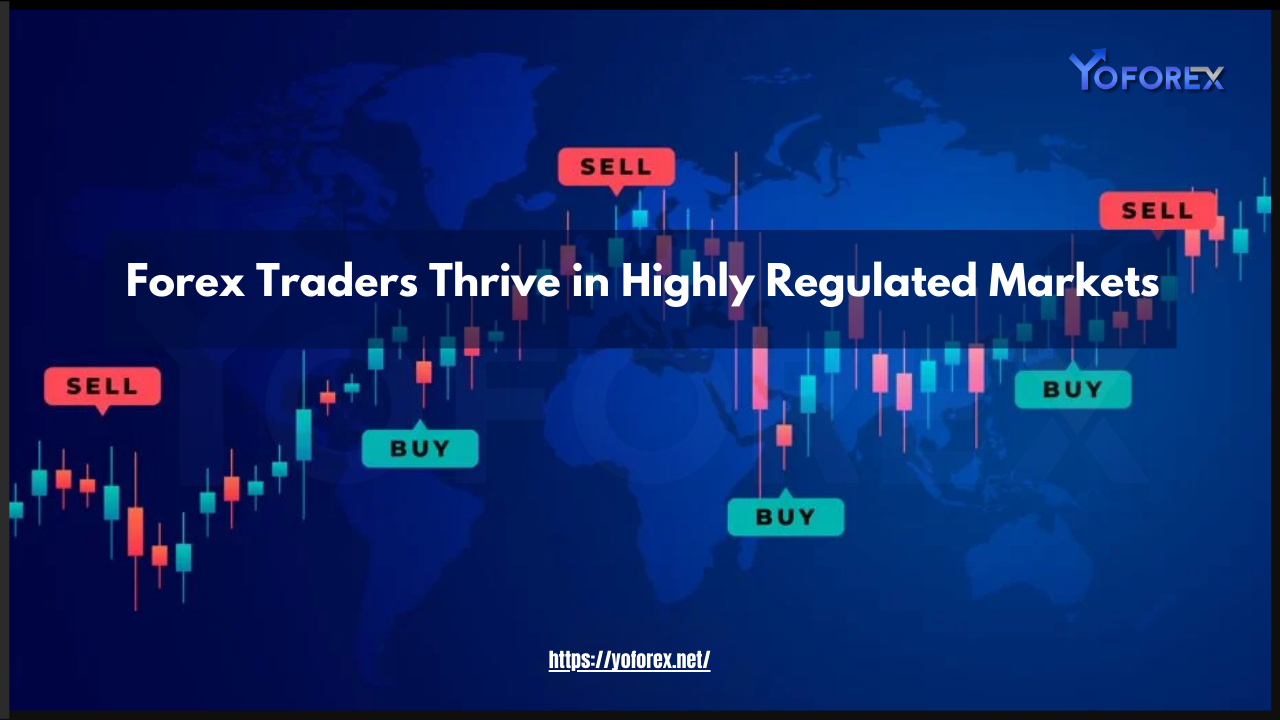The foreign exchange (Forex) market, the largest and most liquid financial market in the world is a dynamic arena where traders seek to profit from currency fluctuations. However, the decentralized and global nature of Forex trading also makes it susceptible to risks such as fraud, manipulation, and unethical practices. In this context, regulation plays a pivotal role in ensuring market integrity, protecting traders, and fostering a secure trading environment. This blog explores why Forex traders thrive in highly regulated markets, highlighting the benefits of regulation, the role of regulatory bodies, and the strategies traders can adopt to succeed in this evolving landscape.
The Importance of Regulation in Forex Trading
Regulation in Forex trading refers to the oversight and supervision of brokers by regulatory bodies. These organizations enforce rules and standards to ensure fair and transparent trading practices. The primary purpose of regulation is to protect traders from fraudulent activities and financial risks, creating a level playing field for all participants.
- Investor Protection: Regulated brokers are required to maintain segregated client accounts, ensuring that traders’ funds are kept separate from the broker’s operational funds. This measure protects traders in the event of a broker’s insolvency or bankruptcy.
- Transparency and Fairness: Regulatory bodies mandate that brokers provide accurate information about fees, trading conditions, and market liquidity. This transparency helps traders make informed decisions and reduces the risk of manipulation.
- Security of Funds: Regulated brokers must maintain sufficient capital reserves and implement robust risk management systems. This safeguards traders’ funds and minimizes the risk of financial losses.
- Dispute Resolution: Regulatory bodies often provide mechanisms for resolving disputes between traders and brokers, offering recourse for grievances and ensuring accountability.

Key Regulatory Bodies in Forex Trading
Several regulatory bodies oversee Forex trading across different jurisdictions, each with its own set of rules and standards. Some of the most prominent regulators include:
- Financial Conduct Authority (FCA) – UK: Known for its stringent requirements, the FCA ensures brokers adhere to high standards of transparency and client protection.
- Cyprus Securities and Exchange Commission (CySEC): A popular regulator in the EU, CySEC enforces compliance with the Markets in Financial Instruments Directive (MiFID), ensuring harmonized regulation across member states.
- Australian Securities and Investments Commission (ASIC): ASIC-regulated brokers are required to maintain segregated accounts and provide negative balance protection, offering a high level of security for traders.
- Commodity Futures Trading Commission (CFTC) and National Futures Association (NFA) – USA: These bodies impose strict leverage limits and require brokers to undergo regular audits, ensuring fair trading practices.
Benefits of Trading with Regulated Brokers
Trading with regulated brokers offers numerous advantages that contribute to a trader’s success:
- Enhanced Trust and Credibility: Regulated brokers are subject to rigorous oversight, making them more trustworthy and reliable.
- Access to Advanced Tools and Platforms: Many regulated brokers offer cutting-edge trading platforms like MetaTrader 4 and 5, which are equipped with advanced analytical tools and automated trading features.
- Educational Resources: Regulated brokers often provide extensive educational materials, including webinars, tutorials, and market analysis, helping traders improve their skills and strategies.
- Risk Management Tools: Features such as stop-loss orders, negative balance protection, and automated trading systems help traders manage risks effectively.
Emerging Trends in Forex Regulation and Trading
As the Forex market evolves, regulatory frameworks are adapting to new challenges and opportunities. Key trends shaping the future of Forex trading include:
- Integration of Artificial Intelligence (AI): AI-powered tools are transforming Forex trading by enabling faster data analysis, predictive modeling, and automated trading strategies. However, traders must balance automation with manual oversight to mitigate risks.
- Rise of Cryptocurrencies: The growing acceptance of digital currencies like Bitcoin and Ethereum is adding a new dimension to Forex trading. Regulatory bodies are developing frameworks to address the unique risks and opportunities associated with cryptocurrencies.
- Sustainable Finance: Environmental, social, and governance (ESG) factors are increasingly influencing currency values. Traders must consider the impact of sustainability trends on national economies and currency performance.
- Increased Retail Participation: User-friendly platforms and mobile trading apps are making Forex trading more accessible to individual traders. This democratization of trading is driving market growth but also increasing volatility.
Strategies for Thriving in Regulated Forex Markets
To succeed in highly regulated Forex markets, traders should adopt the following strategies:
- Choose a Reputable Broker: Verify the broker’s regulatory status and ensure it holds licenses from top-tier authorities like the FCA or ASIC.
- Stay Informed: Monitor economic indicators, central bank policies, and geopolitical developments to anticipate market trends and adjust strategies accordingly.
- Diversify Your Portfolio: Spread investments across major and emerging currency pairs to balance risk and growth potential.
- Leverage Technology: Utilize AI-driven platforms and automated trading systems to enhance decision-making and execution speed.
- Implement Risk Management Practices: Use stop-loss orders, position sizing, and other risk management tools to protect your capital and minimize losses.
Conclusion
Highly regulated Forex markets provide a secure and transparent environment for traders to thrive. By adhering to strict standards and offering robust protections, regulatory bodies ensure fair trading practices and safeguard traders’ interests. As the market continues to evolve, traders must stay informed, leverage advanced tools, and adopt effective strategies to capitalize on emerging opportunities. In this dynamic landscape, regulation remains a cornerstone of trust and success, empowering traders to navigate the complexities of Forex trading with confidence.

